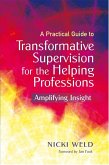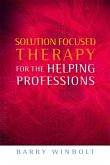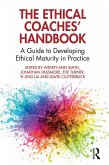How do we, as humans, arrive at what we call morally or ethically good or bad decisions? What processes are involved in making ethical decisions? Is there a way to move towards ethical maturity and how will being ethically mature assist us with any future decisions we might make?
Ethical Maturity in the Helping Professions provides a comprehensive overview of the most influential ideas in ethical thinking across the ages and considers the ethical challenges faced in various contexts of educational, research, business and organisational sectors. The book reflects on the history, philosophy and science of ethics through an interdisciplinary approach and encourages the reader to consider their own ethical decision-making and the influences which play a role in shaping them. The authors also introduce a brand new model for becoming an ethically mature professional.
This book is essential reading for practising and student psychotherapists, psychologists, counsellors, psychiatrists, social workers, nurses, health care and allied professionals.
Ethical Maturity in the Helping Professions provides a comprehensive overview of the most influential ideas in ethical thinking across the ages and considers the ethical challenges faced in various contexts of educational, research, business and organisational sectors. The book reflects on the history, philosophy and science of ethics through an interdisciplinary approach and encourages the reader to consider their own ethical decision-making and the influences which play a role in shaping them. The authors also introduce a brand new model for becoming an ethically mature professional.
This book is essential reading for practising and student psychotherapists, psychologists, counsellors, psychiatrists, social workers, nurses, health care and allied professionals.
Dieser Download kann aus rechtlichen Gründen nur mit Rechnungsadresse in A, D ausgeliefert werden.









